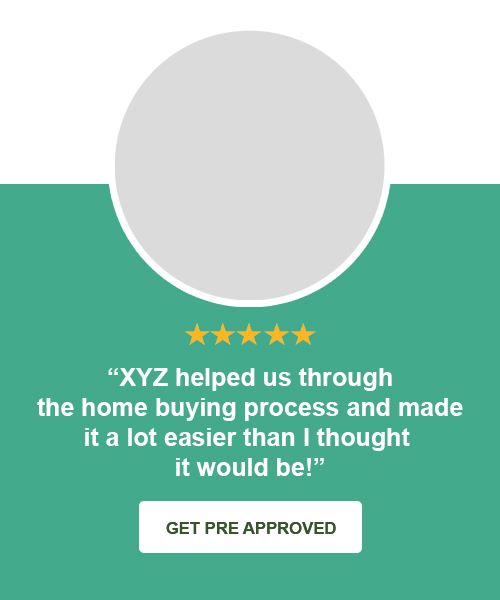
Preparing Your Finances Before Starting The Homebuying Process
Jump To
Are you ready to take the plunge into the exciting world of home ownership? Have you been dreaming about it for years and are now finally ready to make that dream a reality? It’s an exciting time, but it’s important to ensure your finances are in order before starting the homebuying process. With careful preparation, you can ensure that your homebuying journey goes as smoothly as possible. So, how do you get ready for this next big step?
The first thing to do is assess your financial situation. Take a look at your income, savings, debts and other assets to get a clear picture of where things stand. Knowing what your budget is, including how much money you can put towards a down payment, will help you narrow down which properties are within reach. This will also help inform decisions related to getting pre-approved for a loan or mortgage.
Getting professional advice from a financial planner or mortgage broker is also recommended so they can help guide you through the process and provide insight on what options may be available based on your individual circumstances. Taking these steps before beginning the homebuying process will not only prepare you financially but also give you peace of mind when it comes time to commit!
Assessing Your Financial Situation
I’m sure you’re excited about the prospect of owning a home. Before you get too far into the process, it’s important to assess your financial situation – this will help you determine how much house you can afford.
First things first, take an honest look at your budget and take into account all of your debts. Think about your income versus expenses. Are there any areas where you could cut back to save more money? Doing this ahead of time can help you stay on track as you start house hunting.
Next, consider how much money you have saved up for a down payment. This amount may need to be larger than you initially thought in order to qualify for certain loan programs. Reviewing these details now will provide invaluable insight when the time comes to make an offer on a home. Now that we’ve gone over assessing your financial situation, let’s move on to calculating your down payment.
Calculating Your Down Payment
I’m sure you’re beginning to realize that buying a home is a complex process, and there are many components to consider. One of the most important things to understand is how much money you need upfront for your down payment.
Calculating your down payment isn’t as straightforward as it may seem, as there are several factors to think about. Generally speaking, you should plan on saving around 10-20% of the cost of the home for your down payment. That percentage will depend on your financial situation and what type of loan you’re eligible for.
It’s also important to remember that this percentage doesn’t include closing costs or other associated fees. You should add those numbers into your total upfront cost when coming up with an estimate. Once you feel confident in your calculations, it’s time to move onto estimating closing costs!
Estimating Closing Costs
When it comes to buying a home, closing costs can be a bit of an enigma – mysterious, yet essential. To prepare your finances and move closer towards home ownership, estimating these costs is an important step in the process.
It’s wise to be aware of the types of fees you may encounter when securing a mortgage and buying a home. An appraisal fee is necessary to assess the value of the property, while a loan origination fee covers the cost of processing your application and paperwork. You may also need to pay title insurance to protect against any liens or encumbrances on the property, as well as a survey fee if you want an official measure of the boundaries.
These additional costs can add up quickly, so make sure that you are familiar with all expenses associated with closing before committing to anything. Being financially prepared will help ensure that there are no surprises at this stage in your journey to homeownership.
Moving forward, understanding mortgage types and terms is key to helping make an informed decision about your purchase.
Understanding Mortgage Types And Terms
Exploring the mortgage landscape can be a bit like traveling to an unknown country – it’s full of unfamiliar terms and countless permutations. But just like planning for a journey, understanding mortgage types and terms is a critical step in the homebuying process.
Picture yourself standing at the edge of an expansive desert, looking out across a seemingly endless horizon. That image might help you conceptualize the complexities of the mortgage world. From adjustable rate mortgages to jumbo loans, there are so many different types of mortgages available – each with their own unique characteristics.
But don’t let this overwhelm you! With some research and guidance from professionals who understand the mortgage market, you’ll soon feel more confident navigating this landscape. And knowing what loan type best suits your needs will help ensure that your homebuying experience is as smooth as possible.
With a better understanding of mortgages under our belt, we’re ready to take on the next step in this journey: securing pre-approval.
Securing Pre-Approval
Coincidentally, it’s time to think about the next step in the homebuying process – securing pre-approval. Once you have a better understanding of the mortgage types and terms, it’s time to get pre-approved. This is an important step as it will give you an idea of how much money you can borrow from lenders and your budget for purchasing a home.
The pre-approval process involves submitting your financial information, such as income and credit score, to lenders for evaluation and approval. It helps them assess your ability to repay the loan. Lenders usually require documents, such as tax returns and current bank statements, for this purpose. After getting pre-approved, you will receive a letter that indicates how much loan amount you are eligible for.
Pre-approval gives you leverage when negotiating with sellers since they know that you are serious about buying their property. It also helps speed up the closing process since lenders have already evaluated your finances before approving the loan amount.
TIP: Don’t forget to shop around for different lenders with competitive rates and fees before settling on one. That way, you can find the best lender who meets your needs! With pre-approval in hand now, let’s move on to budgeting for other expenses associated with homebuying.
Budgeting For Other Expenses
When embarking on the homebuying process, it’s important to be prepared for any unexpected expenses. Budgeting for these costs is a crucial step in the preparation process, one that shouldn’t be overlooked.
Imagining an organized spreadsheet with various sections labeled ‘inspections’, ‘repairs’ and ‘closing costs’ can help keep you on track. While these costs may seem daunting at first, breaking them down into manageable chunks makes creating your budget achievable. Sticking to this budget will prevent any surprises along the way.
It’s also important to remember that some of these costs are optional and can be eliminated if they don’t fit into your financial plans. Consider which ones are necessary and adjust your budget accordingly. That way, you’ll set yourself up for success as you move onto the next step in the pre-homebuying process: examining your credit history.
Examining Credit History
Before you can buy a house, it’s important to take a look under the hood. Examining your credit history is like taking a peek inside the engine of your car; it gives you an understanding of how financially sound you are.
Coming to terms with this reality can be daunting, but understanding your personal fiscal situation is key for successful homeownership. To get started on the path to success, here are some steps to take when examining your credit history:
- Check your credit score and reports from the three main agencies: Experian, Equifax, and TransUnion.
- Look for any errors or discrepancies that may have been reported mistakenly.
- Make sure payments are being reported correctly if you’ve already paid them off.
- Read up on strategies for improving your score should anything need work.
- Keep track of any changes in scores over time as you work towards financial stability.
Taking these steps will give you a better idea of where you stand financially before making a decision about homeownership. Armed with this knowledge, you can move forward confidently knowing that the foundation of your finances is solid and secure — ready to support the home of your dreams. With this groundwork in place, it’s now time to shift focus towards saving for home maintenance and repairs down the line.
Saving For Home Maintenance And Repairs
As I am preparing my finances for the homebuying process, it’s important to remember that maintenance and repairs are a regular part of homeownership. That’s why it’s essential to set aside money for unforeseen expenses.
I need to be realistic about how much I should save for home maintenance and repairs. An easy way to do this is by creating an emergency fund specifically for home-related expenses. This fund can be used to cover any unexpected repairs such as plumbing or roofing issues, as well as general maintenance costs like painting or replacing windows.
By having this money already saved up, I’ll be able to take care of any issues that come up without worrying about how I’m going to pay for them. It will also help me budget more effectively over the long term since I won’t have to worry about unexpected bills or dipping into my savings when something comes up.
Now that I’ve saved for maintenance and repairs, it’s time to start researching insurance coverage – something else that is important when buying a home.
Researching Insurance Coverage
Now that you have saved for the home maintenance and repairs, it’s time to get started with researching insurance coverage. It can feel a bit daunting if this is your first time buying a house, but don’t be intimidated! Insurance coverage is an important part of the homebuying process and there are lots of resources out there to help you make sure you’re covered.
First off, consider what kind of insurance coverage you need. Are you looking for homeowner’s insurance? What about liability or flood insurance? You’ll want to make sure all your bases are covered when making this decision. You can use online resources like the National Association of Insurance Commissioners to get information on different types of coverage and compare prices from different insurers.
To get the best value for your money, it pays to shop around. Compare quotes from several companies and read up on customer reviews so you know what to expect should something happen down the line. Additionally, ask family and friends who they’ve used in the past and what their experience was like. With all that information in hand, you’ll be able to make an informed decision on which policy is right for you.
Armed with a better understanding of what kind of insurance coverage fits your needs, it’s time to move onto comparing loan rates…
Comparing Loan Rates
When it comes to preparing your finances before starting the homebuying process, comparing loan rates is a must. Take the case of Michael and Sarah for instance. They were ready to take on their first mortgage but had no idea how much their loan was going to cost them in the end.
That’s when they decided to compare different loan rates from a variety of lenders. This enabled them to see which lender offered the most competitive rate that fit their budget and needs. By doing this, they were able to save money by locking in a lower rate than what they would have gone with otherwise.
It’s important that you research all of your options so you can make an informed decision and get the best possible deal on your loan. Don’t forget that even small differences in interest rate can add up over time, so it pays off to shop around and compare loans carefully.
Conclusion
The homebuying process can be stressful and overwhelming, but with the right preparation and the right help through sites like Home Mortgage Guides, it can go much smoother. Before you start your search for a new home, you should assess your current financial situation and make sure you are in a good place to purchase a home. A few things to consider include researching any tax benefits, grants or programs available to help with the cost of buying, getting a home inspection done prior to purchase, and choosing an experienced real estate agent. It is also important to understand how long the process typically takes so that you know what to expect along the way.
On average, it takes around six months from start to finish for the entire homebuying process. This includes pre-approval for a mortgage loan, house hunting, making an offer on a property, and closing on it. During this time there are many decisions that need to be made along the way so it’s best to be prepared with all necessary information beforehand. Additionally, having an emergency fund of three month’s salary can be incredibly helpful if any unexpected costs arise during the process.
Buying a home is an exciting adventure but it requires significant planning and preparation in order to make sure everything goes smoothly. With careful research and planning before starting the process, you will be in a better position when it comes time to find your dream home and close on it!
FAQs
Are There Any Tax Benefits To Buying A Home?
The thought of buying a home can be daunting, especially if you’re unsure about the financial implications. But one thing is certain: owning a home comes with some pretty great tax benefits. You may not know it, but if you’re eligible for these tax breaks, you could save yourself a lot of money in the long run.
Let’s start with the basics. When you own a home, you’re entitled to deduct mortgage interest and property taxes from your annual income taxes. For instance, if your home loan is $500,000 over 30 years and your interest rate is 4%, then your yearly mortgage interest deduction could be up to $20,000! That’s a huge savings—and it can get even better if your property taxes are high or if you decide to refinance and lower your interest rate.
But that’s not all; there are other ways to save on taxes when owning a home. If you make energy-efficient improvements to your house –such as installing solar panels–you may also qualify for credits on your federal or state taxes. These credits will reduce the amount of money you owe at tax time and can potentially offset the cost of making these improvements in the first place.
So don’t let any worries about finances hold you back from buying a dream home. With so many potential tax benefits available, homeownership can be an incredibly rewarding experience—one that pays off financially too!
Are There Any Grants Or Programs Available To Help With The Cost Of Buying A Home?
Buying a home is a huge leap of faith – and can sometimes feel like an impossible task. But, with the right resources, it doesn’t have to be! You may be surprised to find out that there are grants and programs available for those looking to purchase a home.
These grants and programs vary from state to state, so it pays to do your research. Some grants are specifically for first-time homebuyers, while others are open to anyone who meets certain criteria. In addition, some states have programs that allow you to use funds from your retirement account to buy a home without paying taxes or fees.
No matter what your financial situation is, there is likely some form of assistance available for you. Doing your research and talking to a qualified professional can help make the process of buying a home much more manageable – and even enjoyable! So don’t let the prospect of purchasing a house overwhelm you; there are plenty of opportunities out there if you know where to look.
Is It A Good Idea To Get A Home Inspection Prior To Purchase?
It’s always a good idea to get a home inspection before buying a home, right? Well, some experts believe that it’s not necessarily necessary. But in my experience, I think it’s a wise decision. Here are four reasons why:
First off, an inspection can help to reveal any hidden problems the home might have. This could include things like electrical wiring issues, mold growth or structural damage that may not be obvious at first glance. Plus, you can use the report as leverage when negotiating with the seller – if they know there are potential issues with the property, they may be more willing to come down on the price.
Second, an inspection can give you peace of mind knowing that you’re making an informed decision about your purchase. Even if there aren’t any major issues found during the inspection, it’s still good to have confirmation that your dream home really is in good condition. And if any maintenance needs to be done after you move in, then you’ll already have a list of things to take care of and budget for accordingly.
Thirdly, getting an inspection done means that you won’t be held liable for any pre-existing damages or problems down the line. Homeowners insurance typically doesn’t cover these kinds of issues so having them identified upfront can save you from costly repairs later on. It also ensures that everything is up to code and meets local regulations before signing on the dotted line.
Finally, getting a professional opinion is invaluable when considering such a large investment as buying a home. An experienced inspector can provide valuable insight into how well built and maintained a house is and offer advice based on their own knowledge and expertise in this area. You’ll gain valuable information about any potential risks or areas of concern that could impact your purchase decision – something only an experienced eye can identify!
So while it may seem like an unnecessary expense at first glance, getting an inspection done prior to purchasing a home is definitely worth it in the long run – both practically and financially speaking!
What Should I Consider When Choosing A Real Estate Agent?
Choosing the right real estate agent can be a big decision. After all, this person will help you navigate one of the most important financial decisions of your life. So, it’s essential that you take some time to find a real estate agent who is best suited to your needs.
First and foremost, consider their experience. How long have they been in the business? Do they specialize in the area you’re looking to buy in? Experienced agents know how to negotiate and can help you get a good deal. They’ll also have access to a variety of resources that can make the process easier for you.
Reputation is also key when selecting an agent. Don’t be afraid to ask around for referrals from people you trust, such as family members or friends who have recently gone through the home buying process themselves. You should also look online for reviews on different agents so that you can better assess their qualifications and skillset.
It’s important to remember that this is your home purchase and your money at stake – so don’t rush into anything without doing some research first! Talk with potential agents until you feel comfortable with their level of expertise and professionalism before making a decision about who will be your real estate agent throughout the homebuying process.
How Long Does The Homebuying Process Typically Take?
When you’re preparing to buy a home, it’s important to know roughly how long the process is going to take. After all, your finances will need to be in order for the duration of the purchase. So how long does it usually take?
The answer depends on a lot of factors. The length of time can vary based on how far along you are in the homebuying process when you start. It also depends on whether or not you’re using a real estate agent, and if so, how quickly they can help you find the right property and get it under contract. And most importantly, it depends on how complex your financing situation is.
All that said, typically speaking, the homebuying process can range anywhere from two months to six months or more. That’s why it’s important to plan ahead and make sure all your finances are in order before beginning. This way, when you do begin your search in earnest, you’ll have plenty of time to make sure everything comes together as smoothly as possible!
Get A Pre-Approval Today!

Home Mortgage Calculator


Leave a Reply